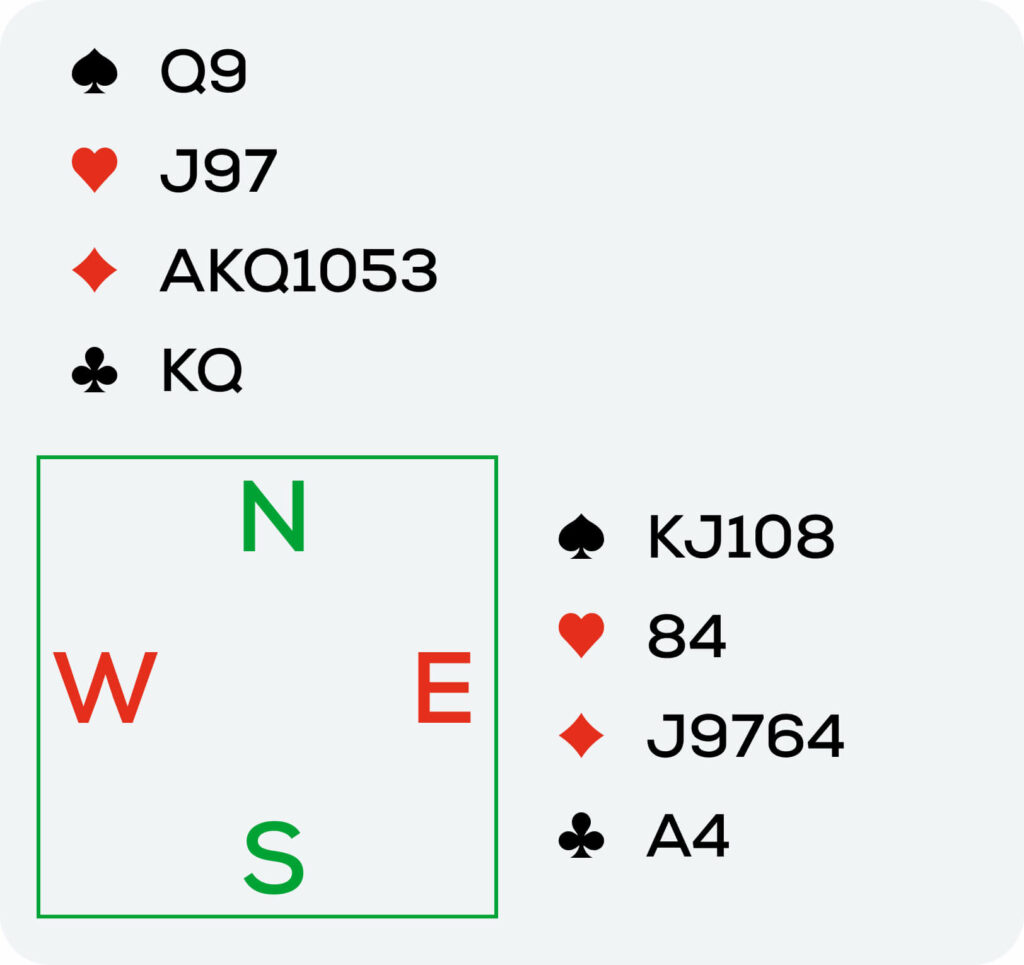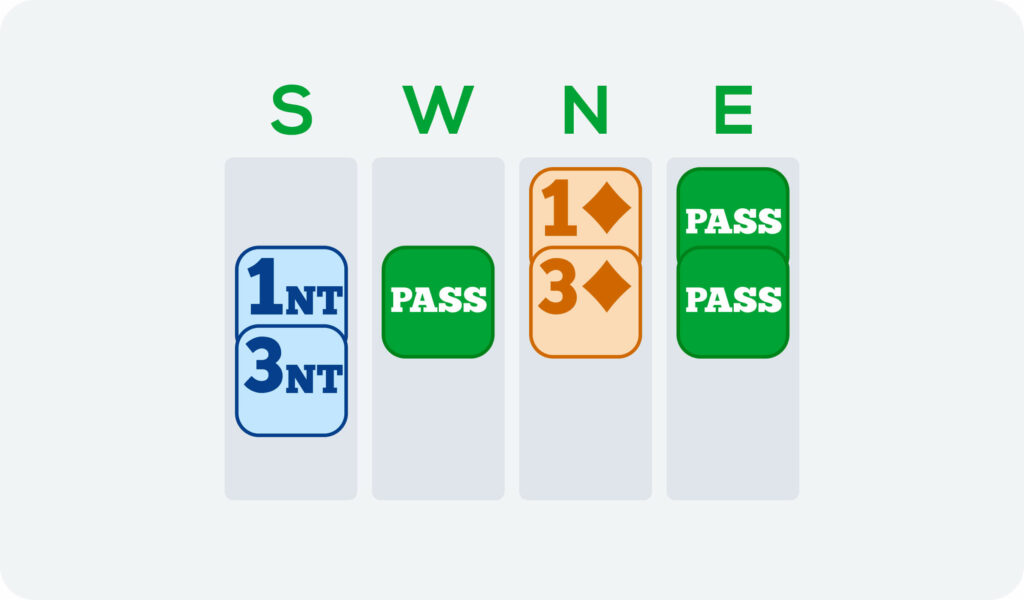
Sink your boat!

Dealer North. E/W Vul.

The bids:

Lead: King of Hearts for dummy’s seven, your eight and declarer’s Ace.
How many points should your partner have?
17 HCP (North) + 9 HCP (you) + 8-10 HCP (South bid again after 3♦) = 34-36 HCP, which leaves abouth 5-6 HCP for partner of which you already know almost all in the form of King-Queen of Hearts.
Looking at your hand, which honors should declarer hold?
The two major-suit aces and maybe the Club Jack, at least fifth.
Why at least fifth?
Simply because with his response of 1NT he has stated that he has less than four cards in each major and you also know that he cannot have more than two Diamonds (a 5-3-3-2 distribution). By the way, he starts tackling the Clubs by playing the seven from his hand to West’s five and North’s King.
Do you take it?
Yes, witout hesitation. South has doubtlessly played his smallest Club (J10987) and you must not duck the King because – for the moment – the suit is blocked by the Queen.
Is he about to win his contract?
Assuming he has a potential of four Club tricks to which you can add the two aces in the majors and Ace-King-Queen of Diamonds (even if a bad surprise is waiting for him in the form of the 5-1 break), he will be able to rapidly claim nine tricks…
… Unless?
Unless you have the courage to deprive him of his only entry to his hand, the Spade Ace, by playing the Spade King after the Club Ace, because after all you won’t beat Three No-Trump with West’s Hearts.
You need a Funbridge Premium or Premium+ subscription to keep reading.
In the full article you will learn if this will be profitable for you, the principle of the “Merrimac Coup” and much more. Login with a Funbridge Premium or Premium+ account to read the full article.




A little beyond me – but I certainly seethe value of it all. Will read it again
Great insight provided on how to cut off your opponent from getting the lead back in his hand in order to make more tricks by using the process of elimination to force him to use up (before he wants to) the suit entre winners he has left in his hand. I never would have thought of how to deductively determine what cards the opponent must have left in his hand before reading your article. Thanks a lot!!
Very good
nice and simple
Please in German
Sie können manchmal im Kampf mit den Gegnern siegreich sein, indem Sie auf eine „destruktive“ Verteidigungspolitik zurückgreifen und den Alleinspieler daran hindern, die Tricks auszuführen, die er benötigt, um seinen Kontrakt zu gewinnen. Das Entscheidungskriterium basiert oft auf der offensiven oder defensiven Natur Ihrer Hand, die sich wiederum aus der Position Ihrer Auszeichnungen ergibt. Hier lagen Ihre Punkte in den Farben Ihrer Gegner, daher war es logisch, seine Kommunikation zu unterbrechen und sich für ein obstruktives statt konstruktives Verhalten zu entscheiden.
This is from Google translate, does it make sense?
Das ist von Google Translate, macht es Sinn?
shows the value of pause to count to make a strategy